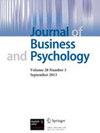人类作为创造力的看门人:我们是否对人工智能的创造力有偏见?
IF 4.9
2区 心理学
Q2 BUSINESS
引用次数: 0
摘要
随着人工智能(AI)越来越多地参与到组织和商业产品的创造中,人类评估者作为人工智能产品的创造力看门人的角色将成为创新过程的关键。然而,当人类评价创造力时,他们的判断被创造者的特征所引发的偏见所蒙蔽。从民间心理学和算法厌恶研究中,我们研究了给定人工制品的生产者是人工智能(AI)还是人类的身份是影响人们对这种人工制品的创造力评估的偏见的来源,以及驱动这种影响的因素。通过四项实验研究(N = 2039),其中两项是预先注册的,使用不同的实验设计和评估目标,我们发现,当人们被告知生产者是人工智能而不是人类时,他们有时(但并非总是)认为产品的创造力较低。此外,我们发现,人们一直认为生成人工智能在创造特定人工制品时比人类付出的努力更少,这导致生成人工智能生产者的创造力评级较低。我们讨论了这些发现在人类与人工智能交互的背景下对组织创造力和创新的影响。本文章由计算机程序翻译,如有差异,请以英文原文为准。
Humans as Creativity Gatekeepers: Are We Biased Against AI Creativity?
Abstract With artificial intelligence (AI) increasingly involved in the creation of organizational and commercial artifacts, human evaluators’ role as creativity gatekeepers of AI-produced artifacts will become critical for innovation processes. However, when humans evaluate creativity, their judgment is clouded by biases triggered by the characteristics of the creator. Drawing from folk psychology and algorithm aversion research, we examine whether the identity of the producer of a given artifact as artificial intelligence (AI) or human is a source of bias affecting people’s creativity evaluation of such artifact and what drives this effect. With four experimental studies ( N = 2039), of which two were pre-registered, using different experimental designs and evaluation targets, we found that people sometimes—but not always—ascribe lower creativity to a product when they are told that the producer is an AI rather than a human. In addition, we found that people consistently perceive generative AI to exert less effort than humans in the creation of a given artifact, which drives the lower creativity ratings ascribed to generative AI producers. We discuss the implication of these findings for organizational creativity and innovation in the context of human-AI interaction.
求助全文
通过发布文献求助,成功后即可免费获取论文全文。
去求助
来源期刊

Journal of Business and Psychology
Multiple-
CiteScore
8.80
自引率
4.20%
发文量
70
期刊介绍:
The Journal of Business and Psychology (JBP) is an international outlet publishing high quality research designed to advance organizational science and practice. Since its inception in 1986, the journal has published impactful scholarship in Industrial/Organizational Psychology, Organizational Behavior, Human Resources Management, Work Psychology, Occupational Psychology, and Vocational Psychology.
Typical subject matters include
Team processes and effectiveness
Customer service and satisfaction
Employee recruitment, selection, and promotion
Employee engagement and withdrawal
Organizational culture and climate
Training, development and coaching
Mentoring and socialization
Performance management, appraisal and feedback
Workplace diversity
Leadership
Workplace health, stress, and safety
Employee attitudes and satisfaction
Careers and retirement
Organizational communication
Technology and work
Employee motivation and job design
Organizational change and development
Employee citizenship and deviance
Organizational effectiveness
Work-nonwork/work-family
Rigorous quantitative, qualitative, field-based, and lab-based empirical studies are welcome. Interdisciplinary scholarship is valued and encouraged. Submitted manuscripts should be well-grounded conceptually and make meaningful contributions to scientific understandingsand/or the advancement of science-based practice.
The Journal of Business and Psychology is
- A high quality/impactful outlet for organizational science research
- A journal dedicated to bridging the science/practice divide
- A journal striving to create interdisciplinary connections
For details on submitting manuscripts, please read the author guidelines found in the far right menu.
 求助内容:
求助内容: 应助结果提醒方式:
应助结果提醒方式:


